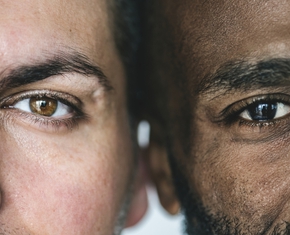The views expressed in our content reflect individual perspectives and do not represent the authoritative views of the Baha'i Faith.
Our words can create a mini-reality for us. How do our lives change if we wake up in the morning and say, “Today is going to be so wonderful” versus if we say “I’m sure today will be miserable?”
The words we think and say contribute a great deal to fashioning our reality.
RELATED: Watching My Tongue to Make the World a Better Place
The Word of God is sometimes called the Creative Word, because of its power to create reality.
In the Baha’i writings, Baha’u’llah often mentions the power of words, and even says creation came about through a word. Here are some of the things Baha’u’llah wrote about the power of the Word of God:
Praised be Thou, O Lord my God! Thou art He Who hath created all things through a word uttered by Thy behest …
Potent am I to accomplish whatsoever I desire through My word “Be”, and it is!
… If it be Our pleasure We shall render the Cause victorious through the power of a single word from Our presence.
Be patient in thy heart, for the people of the world are incapable of beholding thy sovereignty or perceiving thy manifold signs, how much less of recognizing Him Who hath created and fashioned thee through but a single word of His utterance!
Throughout his writings, Baha’u’llah also describes the power of the utterances of people like us:
Indeed through the power of good words, the righteous have always succeeded in winning command over the meads of the hearts of men.
Walk thou steadfastly in the love of God, and keep straight on in His Faith, and aid Him through the power of thine utterance.
Baha’u’llah even gave us an example of the power released through a single word:
Through the mere revelation of the word “Fashioner,” issuing forth from [God’s] lips and proclaiming His attribute to mankind, such power is released as can generate, through successive ages, all the manifold arts which the hands of man can produce.
With all that as background, let’s look at another powerful passage from the Baha’i writings that tells us even more about the profound influence different words can have:
Every word is endowed with a spirit, therefore the speaker or expounder should carefully deliver his words at the appropriate time and place, for the impression which each word maketh is clearly evident and perceptible. … One word is like unto springtime causing the tender saplings of the rose-garden of knowledge to become verdant and flourishing, while another word is even as a deadly poison.

Clearly, some words hurt people by demeaning and objectifying them. Some words hit people like a slap or a punch in the gut. Sometimes, people use words as weapons to make another person feel less important, of lower worth, or even less than human. There are words that end relationships, words that start wars, words that incite violence, and words that oppress.
Whatever else we get from Baha’u’llah’s words about words, I think we can all agree that words can have a powerful effect for good or for ill – which means that we must choose our words with care.
For example: what effect do we create when we use the word “sexy”? I haven’t found any instances of that particular word in the Baha’i writings and I don’t think that’s an accident; it seems to me that it would be out of place in the Word of God.
In fact, I think it’s out of place anywhere and we would be better off without it.
According to the Oxford Dictionary, the word “sexy” means “sexually attractive or exciting.” When a man says, “That woman is very sexy,” the underlying meaning is that the speaker finds the woman sexually desirable. But what effect does that kind of label have on your soul – and hers?
Baha’is understand that human beings are primarily spiritual rather than material. After all, our bodies never last much longer than several decades, but our souls are eternal. So if I say that a woman is sexy, I convey a message that her material reality solely defines her in my eyes. Here’s the difference: “sexy” isn’t even a property or attribute of a person, it’s more about someone else’s response – but if you are merciful, friendly, generous, introspective, compassionate, that’s your own attribute and has little to do with other people’s perceptions.
RELATED: A Tribute to Abdu’l-Baha and His Words
So instead of commenting on a person’s physical appearance, we’re better off emphasizing virtues and spiritual qualities. Part of the lyrics of Red and Kathy Grammer’s inspiring song, “I Think You’re Wonderful” say, “When somebody says that [I think you’re wonderful] to me, I feel wonderful.” When someone praises our inner spiritual qualities, we find ourselves wanting to develop them more, whereas when someone praises our outward physical qualities, we may focus more on developing those, instead of working on our spiritual qualities.
So, as we “carefully deliver [our] words at the appropriate time and place,” being conscious of “the impression which each word maketh,” wouldn’t it work best to make a big effort selecting words that encourage people to develop their eternal virtues rather than redirecting their focus to their temporary material reality? That way, we’re constantly speaking words that are “like unto springtime,” instead of words that are “as a deadly poison.” Wherever you think words like “sexy” fit on that scale, is it ever worth using them?
















Comments
Sign in or create an account
Continue with Googleor